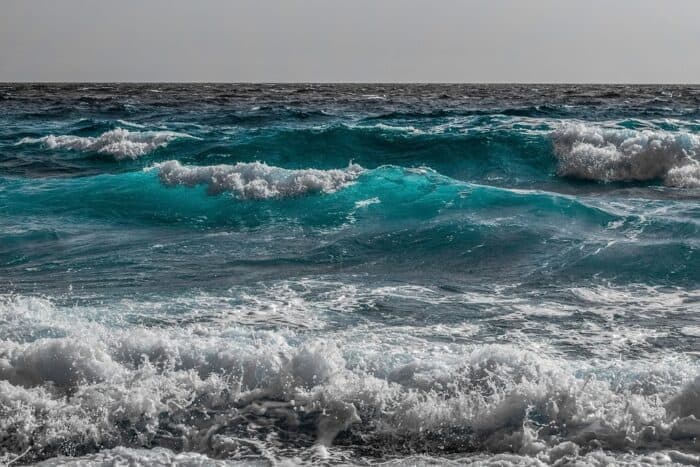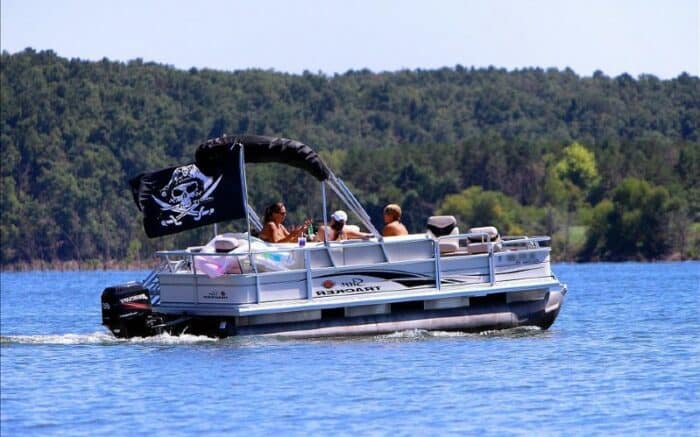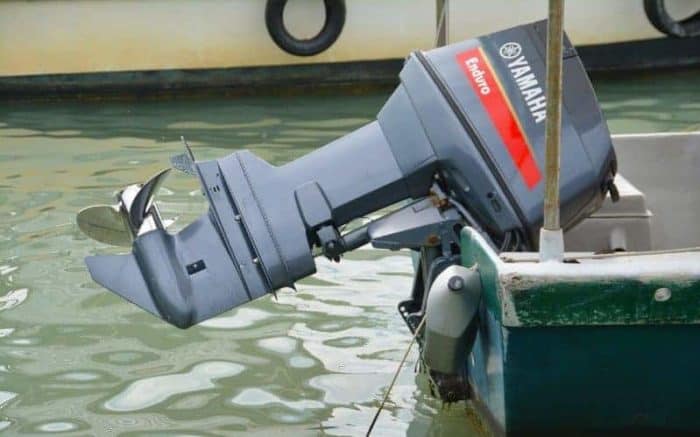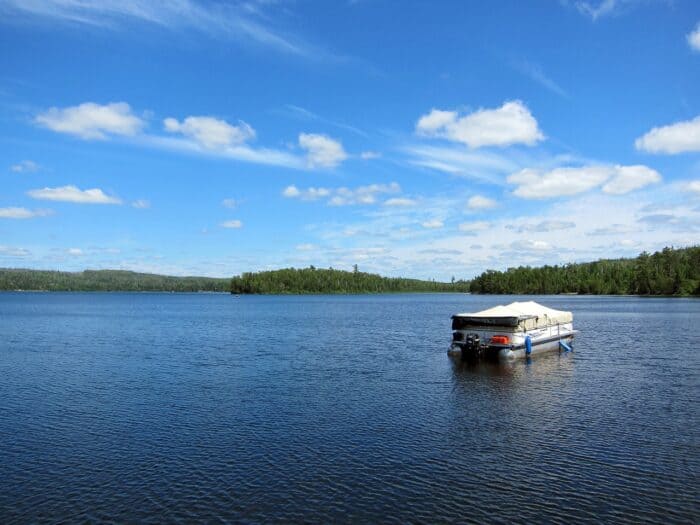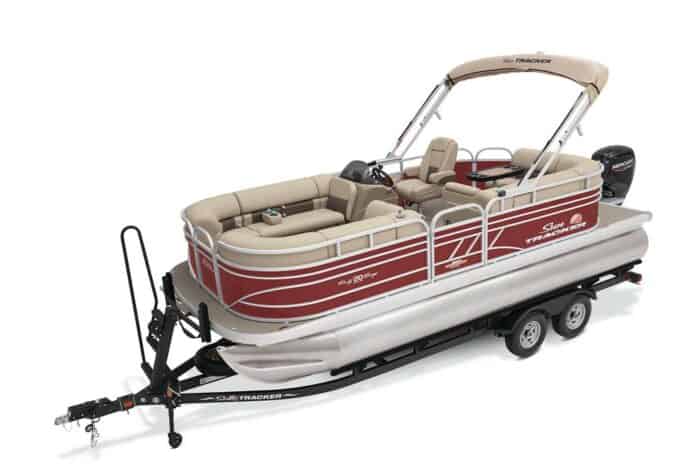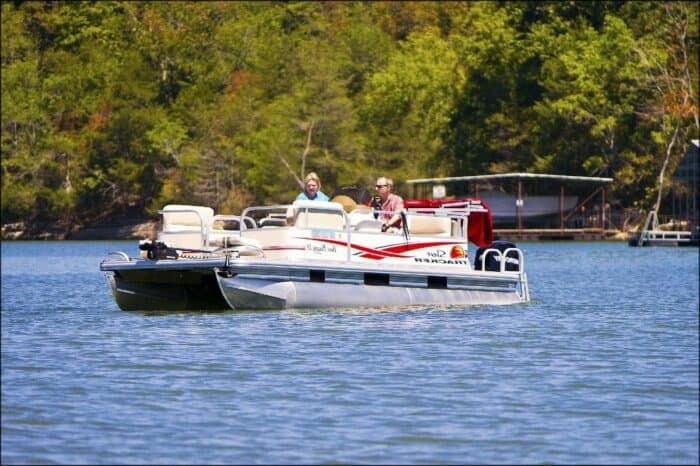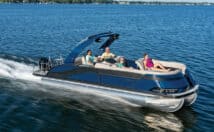Can a Pontoon Boat Sink?
Yes, pontoon boats are capable of sinking. Please don’t go boating on a pontoon boat under the mistaken impression that they are incapable of being sunk. That said, a pontoon is also a very safe and reliable kind of boat. They offer great stability and in most circumstances they will hold up better than other kinds of boats on the water. It is by no means easy to sink pontoon boats but they can and do sink.
What Makes Pontoon Boats Sink?
There are actually a number of potential reasons why a pontoon boat might sink, so let’s cover the most common ones.
Overloading
Pontoon boats can only handle so much weight at one time. This is perhaps the most common cause of pontoons sinking and, in truth, the only one I have ever seen firsthand in my life. It’s almost an ironic fate for the boats because it’s the result of people trying to use the pontoon boat as designed, just too much, if that makes sense.
Pontoon boats are often called party boats and SunTracker officially uses the Party Barge name on some recreational boat models. Because they have a lot of deck space, they offer more room for people to hang out and have fun. This is a great asset but also a great weakness. There is typically more space available on the deck of a pontoon boat than can be used. If you fill the deck, you can overload the weight capacity of the boat. It isn’t easy but, as I said, I saw it happen once.
Basically, if you try to cram as many people onto a pontoon boat as will fit on the deck, the overall weight is more than the pontoons can handle. This could probably happen to even a tritoon if someone pushed its limits. But, when used as a party boat, if dozens of people are brought on board the pontoons simply can’t maintain needed buoyancy. At some point, the deck will dip into the water and the entire boat will go under, spilling people into the water, which is what I saw.
It’s worth noting that the pontoons, if undamaged, will allow the boat to resurface after most of the people fall off of it, but it may still be partially submerged and there will likely be some damage as well. So you could say that technically pontoon boats sinking is even more rare, sink when a pontoon boat sinks it can potentially pop up again after.
Most pontoon boats can carry between 1,500 and 3,000 pounds at the extreme end. A 20 foot Party Barge from SunTracker is meant to handle 10 people with a total weight capacity for people and gear of 1900lbs. The weight of a person is usually calculated at an average of 150 lbs. You can imagine what happens if someone decides maybe four more people can get on the boat. And if maybe more than half of them weigh closer to 200 lbs. That could put you closer to 2500 lbs just in passenger weight.
Weather and External Conditions
A pontoon is a very shallow draft vessel. When used in rough water they struggle a lot. They’re best used in lakes and maybe in coastal waters like coves or bays, but you’d never want to take one out into the ocean for any extended travel.
When the weather turns and seas get rough, you lose a lot of control in a pontoon. Remember, a pontoon boat sits on top of the water so they’re at the mercy of what happens underneath. You don’t have an impressive keel like you do in a sailboat. The flat bottom hull is designed for calm water and provides no stability on rolling waves and chop.
When conditions get bad enough, a pontoon boat is literally at the mercy of the waves. They can be tossed or dipped low enough that the bow will plow into the water causing the vessel to submerge. You can’t cut into waves like you can with a traditional V-shaped hull boat. Instead, every wave will just crash over the pontoon and you’ll be taking on water.
Since you are unlikely to be in rough conditions like this on a pontoon boat, this is probably a rare event. But even on a lake, the weather can turn quickly and this could end up sinking a pontoon.
Damage
The way the pontoon tubes are designed on a pontoon boat makes them very resistant to the kind of damage that might sink another vessel. Even if a pontoon were to break, it will likely be separated on the inside into several chambers. You may flood one of these chambers if you accidentally run aground on something but the others should maintain buoyancy, certainly enough to keep you afloat and get you back to safety. You can also use the drain plugs later to release any water.
It’s not impossible for your pontoon to suffer more extreme damage. This could happen in very shallow waters if you’re not familiar with your surroundings. If something were to damage the entire pontoon from end to end, it could fully take on water. Losing buoyancy entirely on one side would likely be catastrophic and cause the boat to capsize.
I’ve never seen it myself but I have heard tell of accidents, usually with other boats, that are bad enough to tear an entire pontoon off of the boat. How would that happen? Good question. I imagine it was an older boat, maybe in bad condition, but it’s something to think about
Poor Handling
You need to know how to drive a pontoon boat in all conditions and do so carefully. It’s very easy to manage a pontoon boat, which is part of the reason they’re so popular, but there are a couple of cases where caution is needed – rough waters and when confronting the wake of another vessel.
Pontoon boats are typically not speed demons but newer models can often go 30 or 40 mph and some even faster. This can be fun but if you don’t handle the boat right it can cause big issues when you encounter choppy water.
For the same reason your pontoon boat is at the mercy of the open sea when the weather turns, the wake of another vessel can cause havoc. You want to hit the wake of another boat at about a 45 degree angle and at reduced speed in your pontoon. Where a speed boat could hit the wake and cut through it, your pontoon will smash it like a wall and the water will come over the deck of your boat. If the wake and speed are too great, this could potentially lead to a serious accident.
If the situation is bad enough, you could end up taking on too much water and sinking the boat as a result.
Wrong Motor
The way the motors work on a pontoon boat is mostly the same as other boats but not exactly. The pontoons keep you up off the water. So those engines need to be mounted and run correctly, and they need to be the right power. If you can’t get your pontoon boat on plane because the motor is mounted incorrectly or has the wrong motor power, your bow is going to dip low and instead of driving the boat forward you’ll just drive it down.
This is rare, to be sure, but it’s a risk if you try to play with your engines and don’t ensure you have the right one in use. Once your bow dips low, you’ll take on water and you risk sinking.
Poor Weight Distribution
We already saw what happens when you have too many people on the boat in general, but you can still be under capacity and have weight issues. You need to distribute that weight evenly, that includes gear and people.
You should distribute the weight so that the stern is always a little heavier than the bow. You need to keep the bow up as you go, so too much weight is going to make you plow down into the water and put the boat at risk. Likewise, you want to avoid excessive weight to one side or the other where a single pontoon has to do most of the heavy lifting. If the water gets rough for any reason, this can lead to trouble for you and your passengers.
The Bottom Line
Pontoon boats can sink for a number of reasons. Most pontoon boat owners will agree that they have not experienced most of these cases and they really do seem to be rare. But you never want to convince yourself a boat is unsinkable, as that can turn out badly. Issues with overloading, weight distribution, damage, poor handling and rough seas can all lead to a pontoon boat sinking.
Categories: Pontoon Boats

